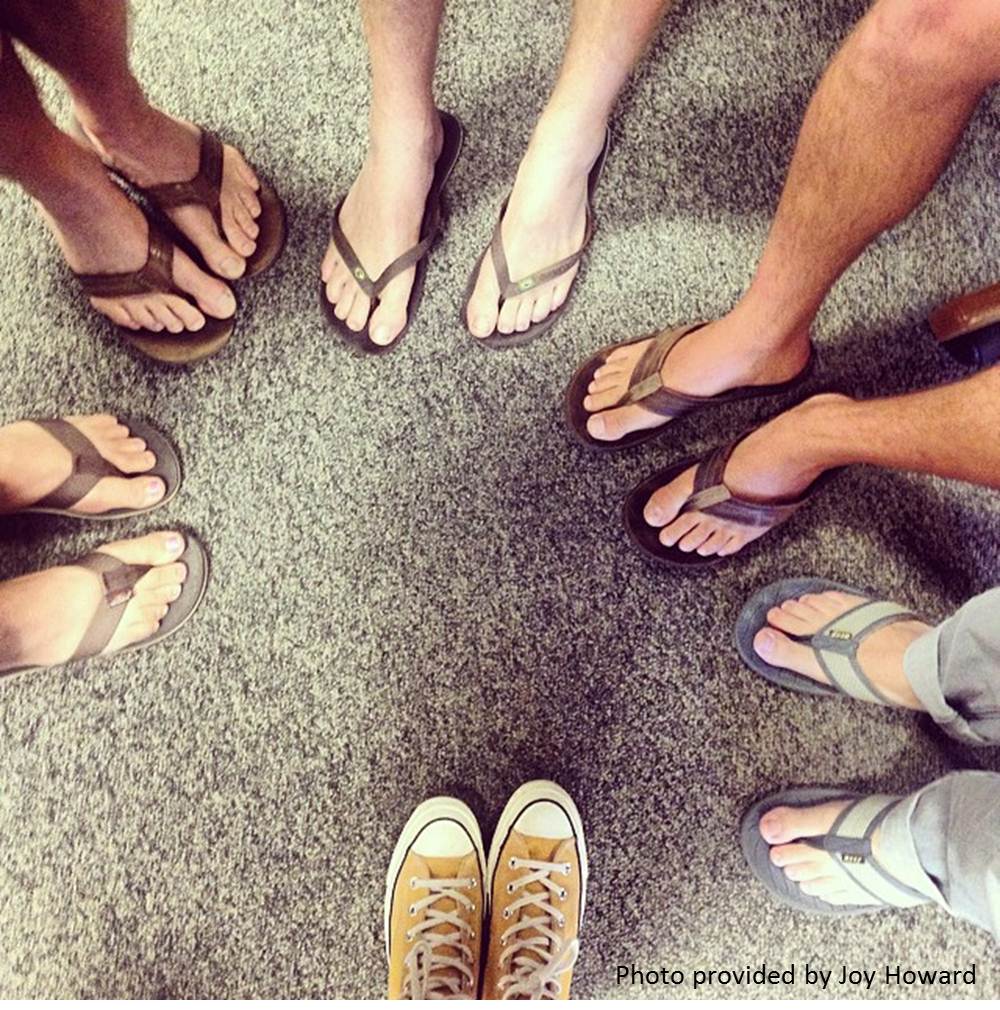Business as Unusual at Patagonia

by Brendan Condit, MBA ‘15

Though his unconventional experience at Patagonia included surf lessons and flip flops at work, Brendan Condit’s (MBA ’15) biggest takeaway was the attitude of employees and the overall character of the culture.

My MBAinternship at Patagonia has beenan eye-opening experience. Before joining, I wondered if the company could possiblylive up to its reputation. Were the stories of Patagonia’s “business as unusual”now taught in MBA curriculums around the world, really true? Speaking fromexperience, all the cool stuff you have read about Patagonia – midday surfsessions, flip flops in the office, paid volunteer time, onsite childcare, etc.– it’s all true. It’s the real deal. In fact, there are far too many benefitsto list here.
But whileall of those daily perks are incredible, it is the end result that has had abigger impression on me: the attitude of employees and the overall character ofthe culture.
AtPatagonia, employees are predominantly happy, healthy, relaxed, well balanced,and, most importantly, deeply passionate about their work. The positive vibecan be felt bubbling in almost every meeting in the building. People are psychedand primed for creative collaboration.
From myperspective, their daily passion for work has little to do with picking up afew extra points of market share. Though performance obviously matters,motivation here is driven by designing a catalog that truly inspires our customers,or launching an impactful, disruptive environmental effort.
Patagoniaemployees care about the success and strength of the brand because theyidentify deeply with the core values of the company. In a recent meeting, acolleague remarked casually that we would all “bleed for this brand.” He is probablyright. The mission statement – “Build the best product, cause no unnecessaryharm, use business to inspire and implement solutions to the environmentalcrisis” – plays an integral role in daily operations. It is a rallying cry thatunites employees with a common cause and focuses all effort.
In fact, itis common for employees to ground their work in word-for-word excerpts from“Let My People Go Surfing,” Patagonia founder Yvon Chouinard’s 2006 memoirabout the founding of his company and an exploration of the philosophies thathave shaped it. It is a fascinating read for anyone, but it is especiallyvaluable for employees. To them, it can serve as a handbook for decision-making– a quick-reference guide to ensure that their thinking on a project isgrounded in the company’s ideology.
A primeexample of this is the project I am working on this summer. My job is to writethe strategy for a new business unit with an unconventional goal: to reduce thenumber of new items that Patagonia customers buy from us. Just think about thatfor a minute.
When my bossfirst told me about the project and described what he wanted from this fresh-faced business school student, he said something to the effect of, “We don’t reallyexpect to make money with this business. We just need to know how much we standto lose.” In the end, after a summer of analysis and planning, I think we willactually be able to create a sustainable platform out of this new business, buthow many managers do you know who would happily propose a project like that? AtPatagonia few would think twice.
In fact,just about everyone around here regards growth with a healthy bit ofskepticism. Honestly, the leadership team does not seem quite sure that growthis necessarily a positive thing. Every time someone mentions the company’sstrong performance in the last few years, they are bound to follow it up with adiscussion of “measured, responsible growth.” In two months, I have never heardanyone say “quarterly earnings” or “net income.”
With summernearly over and room to reflect on the entire process, it is clear that thisinternship has been unbelievably valuable. I have gained incredible insightinto what I am looking for in a career, as well as broader insight into theright way to run a company. It was exactly what I needed to energize myself andremember why I went to business school in the first place.
LeavingVentura and Patagonia will be bittersweet. I love it here. The people are wonderfuland I find the work invigorating and rewarding. On the other hand, I am also reallyexcited to head back to Ithaca and complete my MBA. With so many richexperiences to draw from this summer, I am certain that the second year ofclasses will take on a whole new meaning and purpose.
